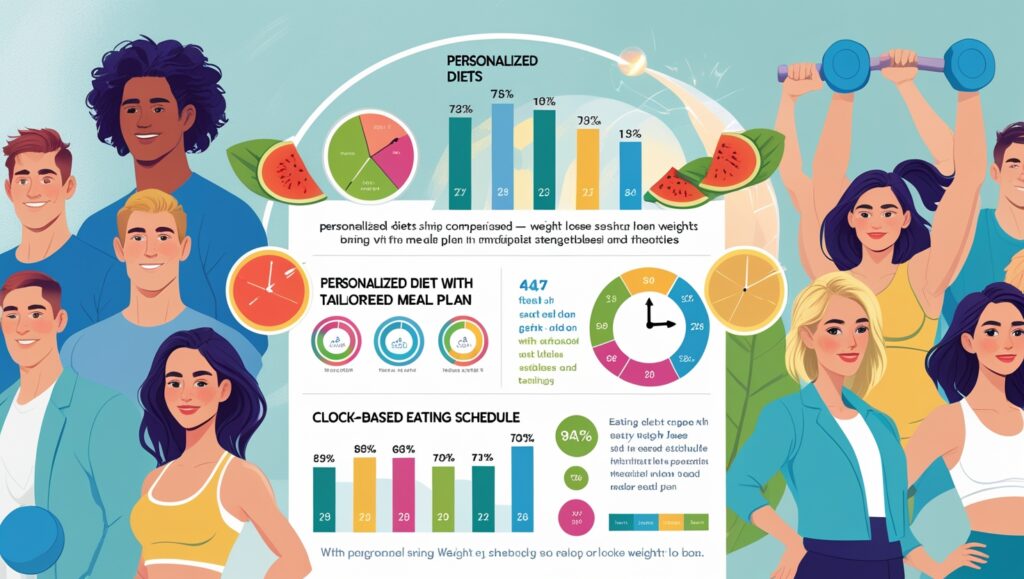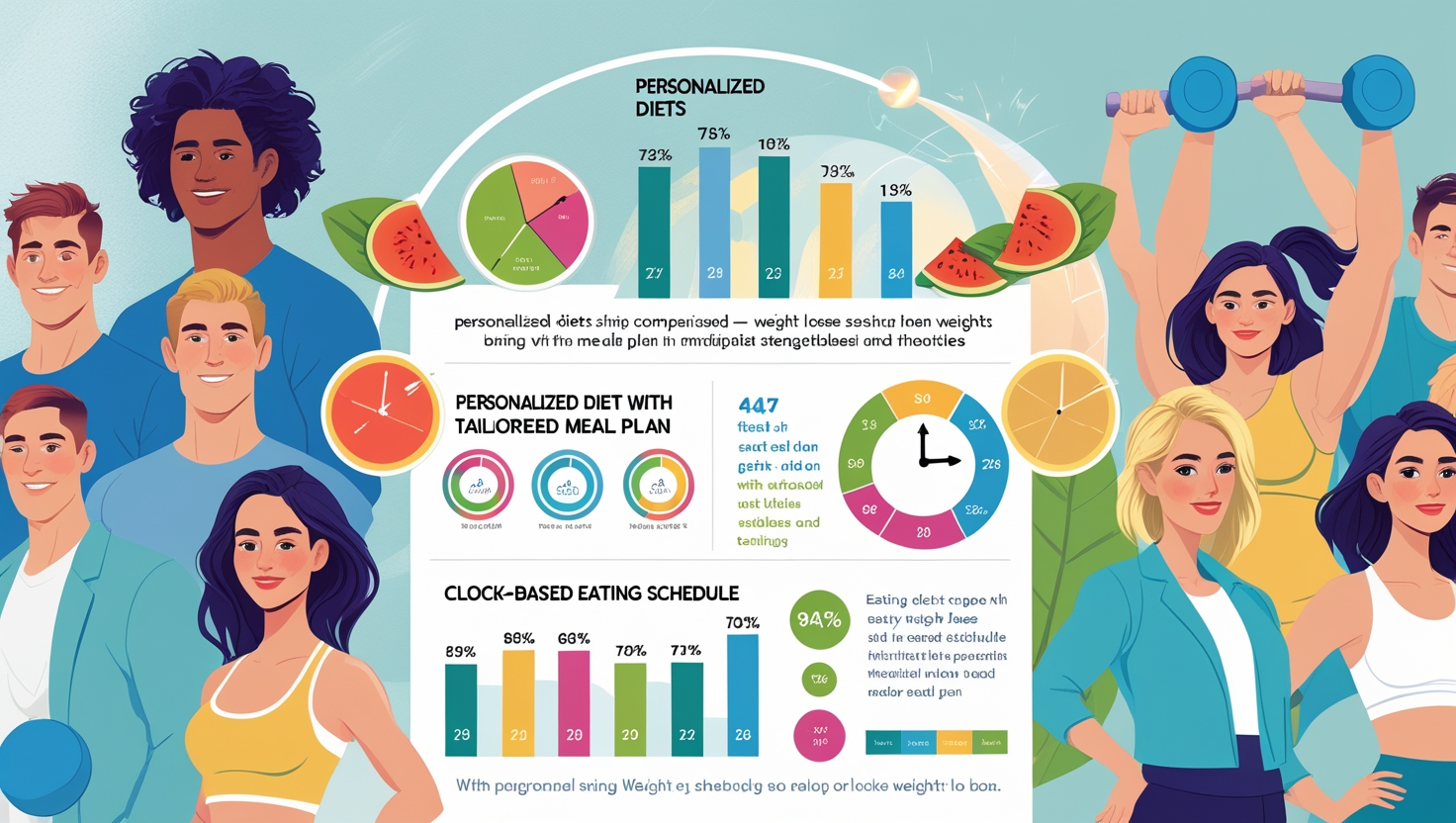The Future of Weight Loss: What to Expect in 2025
With the rise of technology, new scientific discoveries, and evolving dietary habits, weight loss in 2025 is expected to be more personalized and effective than ever. People worldwide are seeking sustainable weight loss methods, moving away from quick fixes and extreme diets. Scientific advancements are shaping new strategies that focus on metabolism, behavior change, and holistic health.
In this article, we will explore the top weight loss trends of 2025, highlighting what research suggests as the most effective methods for achieving and maintaining a healthy weight.
Personalized Nutrition Based on Genetics and AI
One of the biggest advancements in weight loss is the rise of personalized nutrition. Unlike generic diet plans, AI-driven and genetic-based nutrition approaches tailor recommendations to an individual’s metabolism, gut microbiome, and genetic profile.
How It Works
- DNA-based diets analyze genetic markers to determine how the body processes macronutrients.
- AI-powered meal plans adjust in real-time based on data from wearable devices, blood tests, and activity tracking.
- Microbiome testing identifies gut bacteria imbalances that may influence weight gain or loss.
Studies suggest that customized diets result in greater adherence and improved metabolic responses. In 2025, we can expect a shift from one-size-fits-all diets to highly individualized eating plans that consider biological factors.
The Rise of Time-Restricted Eating and Circadian Nutrition
Another scientifically supported weight loss trend is time-restricted eating (TRE), often referred to as intermittent fasting. However, new research emphasizes the role of circadian rhythms in metabolism, leading to a more refined approach known as circadian nutrition.

Key Principles
- Eating within an 8- to 12-hour window enhances metabolic efficiency.
- Aligning meals with daylight hours improves digestion and fat metabolism.
- Avoiding late-night eating reduces the risk of obesity and metabolic disorders.
A study published in Cell Metabolism found that synchronizing meals with the body’s internal clock leads to greater fat loss and improved insulin sensitivity. As more individuals seek natural ways to manage weight, time-restricted eating is likely to gain further popularity in 2025.
Strength Training Over Cardio for Fat Loss
For decades, cardio exercises were considered the best way to burn calories and lose weight. However, emerging research suggests that strength training may be more effective for long-term fat loss.
Why Strength Training Works
- Increases lean muscle mass, which boosts resting metabolism.
- Enhances fat oxidation and insulin sensitivity.
- Prevents muscle loss often associated with calorie-restricted diets.
According to the American Journal of Clinical Nutrition, individuals who prioritize resistance training while in a calorie deficit retain more muscle and burn more fat compared to those who focus solely on cardiovascular exercise.
Comparing Strength Training and Cardio
| Factor | Strength Training | Cardio (Running, Cycling) |
|---|---|---|
| Fat Burning (Long-Term) | High | Moderate |
| Muscle Preservation | High | Low |
| Metabolism Boost | High | Moderate |
| Calories Burned Per Session | Moderate | High |
This shift towards strength-focused training programs is expected to dominate the fitness industry in 2025, encouraging individuals to incorporate weightlifting, resistance bands, and bodyweight exercises into their routines.
The Role of Mindfulness and Behavioral Coaching
Beyond diet and exercise, research highlights the importance of psychological factors in weight loss. The emergence of mindfulness-based weight management programs emphasizes changing eating behaviors, stress management, and emotional regulation.
Key Strategies
- Mindful eating: Paying attention to hunger cues and food choices.
- Behavioral coaching: Using cognitive-behavioral therapy (CBT) techniques to break unhealthy habits.
- Stress management: Reducing cortisol levels to prevent emotional eating.
Scientific studies confirm that individuals who adopt mindfulness-based approaches are more likely to maintain weight loss long-term. As a result, digital coaching apps and virtual therapy sessions are expected to expand in 2025, offering personalized guidance for sustainable weight control.
A Shift Towards Science-Based, Sustainable Weight Loss
As we move into 2025, weight loss methods will continue to evolve, prioritizing sustainability, personalization, and scientific backing. Key trends include genetic-based nutrition, time-restricted eating, strength training, and behavioral coaching, all supported by rigorous research.
While no single approach fits everyone, individuals seeking effective weight loss strategies should focus on long-term lifestyle changes rather than short-term solutions. By embracing the latest scientific insights, weight loss in 2025 can be both achievable and sustainable.

